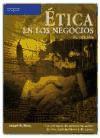- Start
- The Church, the State, and the Poor
The Church, the State, and the Poor
Angebote / Angebote:
Excerpt from The Church, the State, and the Poor: A Series of Historical Sketches
To study history, it has been well said, is to enlarge experience. To know what has been attempted in the past, and with what results, should be a guide to present action. It may be maintained that the conditions of the present are so different from those of any previous age, that to appeal to the past is useless. But if conditions have changed, human nature is very much the same as it was either fifteen hundred, five hundred, or one hundred years ago. And the problems of poverty are, as a rule, much more problems of character than problems of circumstances.
Again, the evil conditions of large masses of poor people in England to-day are mainly due to a want of foresight and wisdom on the part of those who were in authority, both in Church and State, during the first hundred years of the "Industrial Revolution." Unfortunately, from ignorance of the past, we are actually repeating methods which have been proved to be useless, if not worse. We are not only perpetuating, but even continuing to create, conditions which a knowledge of history shows us must inevitably lead to disaster.
To help to supply a knowledge of the various ways in which at different times both Church and State have attempted to deal with the problems of poverty, and of the results of their efforts, is the object of this book.
About the Publisher
Forgotten Books publishes hundreds of thousands of rare and classic books. Find more at www.forgottenbooks.com
This book is a reproduction of an important historical work. Forgotten Books uses state-of-the-art technology to digitally reconstruct the work, preserving the original format whilst repairing imperfections present in the aged copy. In rare cases, an imperfection in the original, such as a blemish or missing page, may be replicated in our edition. We do, however, repair the vast majority of imperfections successfully, any imperfections that remain are intentionally left to preserve the state of such historical works.
Folgt in ca. 5 Arbeitstagen

